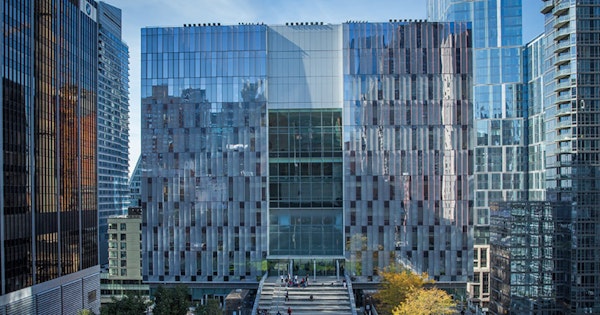
How CUNY Is Redefining Campus Culture Through Dialogue Across 26 Campuses
CUNY’s Journey to a New Campus Culture
In one of the most ambitious culture-change initiatives in higher education, the City University of New York (CUNY) and the Constructive Dialogue Institute (CDI) have embarked on a multi-year effort to reshape how their communities engage across differences. While this work is still in its early stages, with preliminary initiatives underway, the progress so far shows that even the most diverse institutions can begin to strengthen campus culture in meaningful ways.
Serving nearly 240,000 students across 26 campuses, CUNY is a living laboratory of diversity. Students bring a rich mix of racial, ethnic, religious, socioeconomic, political, and ideological perspectives. Harnessing that diversity as a strength—rather than letting it become a source of division—is both CUNY’s greatest challenge and its greatest opportunity.
Why One of the Nation’s Most Diverse Systems Chose Dialogue as Its Path Forward
As the largest and most diverse urban public university system in the country, CUNY’s greatest strength — its diversity — also presents a challenge: how to ensure that voices from every background can be heard, understood, and valued. With students commuting from all five boroughs and beyond, there are fewer natural touchpoints to build relationships outside the classroom.
In this environment, dialogue becomes more than a skill — it’s a bridge. It creates intentional spaces for students, faculty, and staff to connect across differences, navigate disagreement with confidence, and deepen a sense of shared community. It’s this capacity for connection that CUNY is now working to embed into the fabric of campus life.
“As the nation’s largest urban public university, CUNY has a responsibility to foster a campus culture where all voices can be heard and difficult conversations can be navigated with respect.”
—Rachel Stephenson, Chief Transformation Officer, CUNY
Inside the CUNY–CDI Partnership: A Multi-Year Plan for Lasting Change
The system-wide transformation will take place across 26 campuses simultaneously with a phased approach. This requires three key components: utilizing scalable programs, adapting and accommodating to the context of each individual campus, and operating at multiple levels of constituents across administrative leaders, staff, faculty, and students.
This effort is built on five interconnected levels of work:
- Leadership Development: Training presidents and senior leaders to guide their campuses through challenging periods.
- Dialogue Facilitation Certification: Equipping student-facing staff with 20 hours of facilitator training to mediate conflict and foster engagement.
- Faculty and Student Engagement: Embedding dialogue into classrooms, student leadership, and co-curricular activities.
- Scalable Blended Learning: Large-scale rollout of CDI’s evidence-based Perspectives online program.
- Evaluation and Impact Assessment: Tracking cultural shifts with rigorous surveys, analytics, and feedback loops.
By collaborating closely and applying culture change management principles, CDI and CUNY are ensuring this work is both evidence-based and authentically tailored to each campus.
Early Results That Signal More Than Just Numbers
Before CUNY’s work could be initiated across all 26 campuses, it began with a smaller step: bringing together campus leaders to co-create pilot programs that would test dialogue initiatives in real time. These pilots became proving grounds — places where faculty, staff, and students could adapt the approach to fit their unique campus culture while building momentum for something much larger.
The results from Spring 2025 pilots show how quickly impact can take hold:
- 93% participant satisfaction
- 92% plan to apply their new skills in personal and professional life
- 91% report gaining valuable professional and life skills
But the numbers only tell part of the story. Campus administrators are actively shaping the program to fit their unique contexts, creating a palpable sense of ownership and momentum across all 26 CUNY campuses. It is this momentum that bodes well for the next phases of the transformation.

How Dialogue Can Become Part of the DNA across the System
From orientation to faculty development, dialogue is being woven into existing structures so it becomes a natural part of campus life:
- First-year experiences now include foundational dialogue skills.
- Faculty and staff training integrates constructive engagement as a core competency.
- Student leaders model and facilitate dialogue in peer communities.
CUNY is moving toward a broader rollout so that more of each campus community embraces dialogue practices and they become self-sustaining parts of campus culture.
“When dialogue becomes part of the way a campus operates — in classrooms, in leadership meetings, in how students connect with one another — that’s when you start to see real, lasting culture change.” —Mylien Duong, Senior Director of Research, CDI
What CUNY’s Success Could Mean for Colleges Everywhere
The CUNY-CDI partnership is a model for campuses everywhere. By working together to invest in broad transformation that touches every level of campus life, students, faculty, staff, and administration, even the largest and most complex institutions can build a culture where ideological diversity and constructive dialogue thrive side by side.
If CUNY can create lasting change across 26 diverse campuses serving 240,000 students, other institutions facing similar challenges have reason for optimism. The path forward isn't about quick fixes, it's about sustained commitment to dialogue as a bridge across difference.
Learn more about CDI’s research-backed approach to dialogue and culture change at constructivedialogue.org.
Follow Our Work
Sign up for our higher education newsletter to get regular updates on our research, product releases, and the science & practice of constructive dialogue.